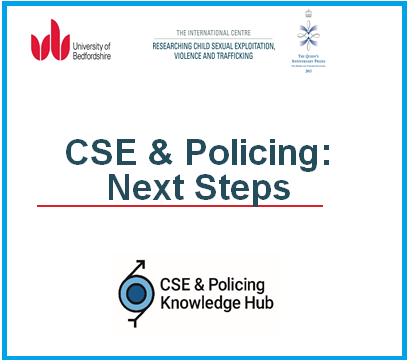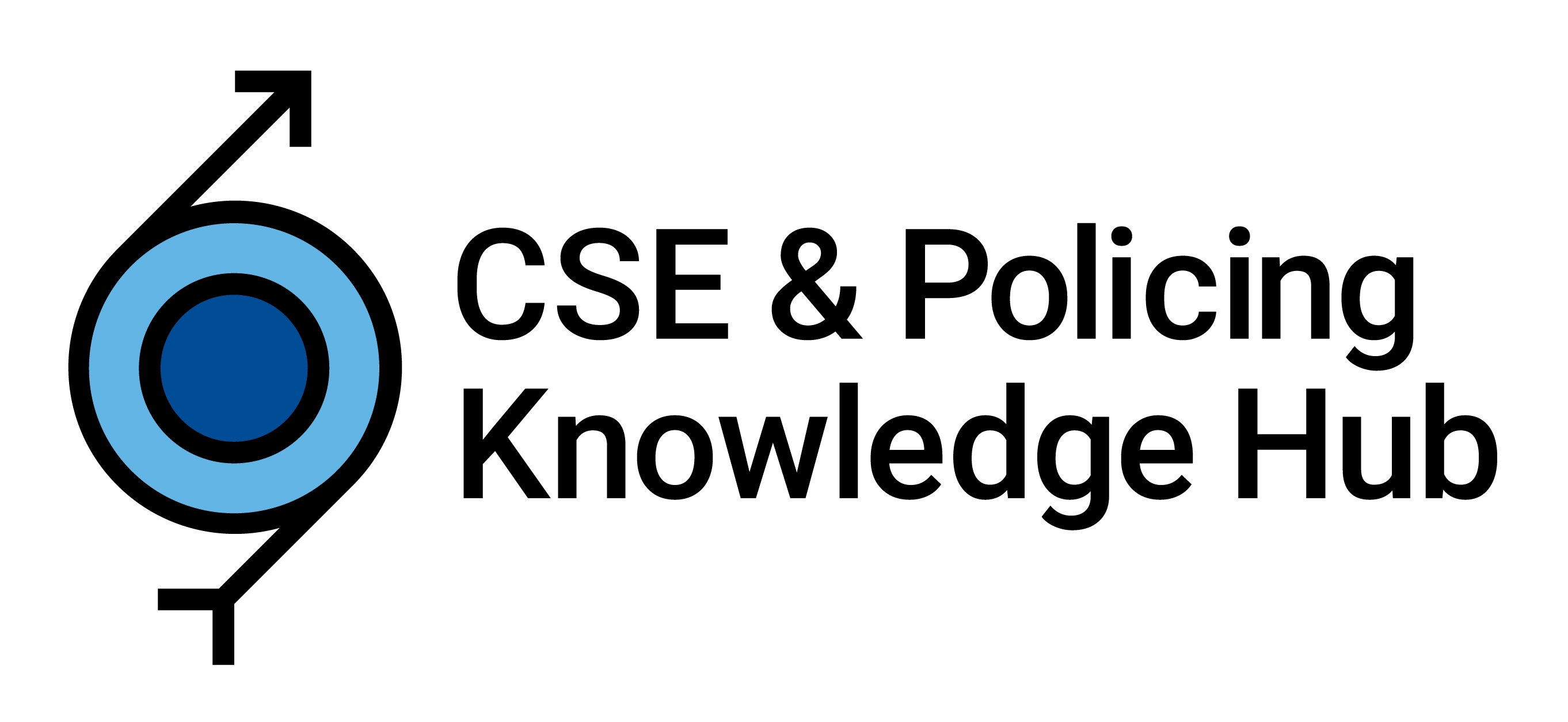Working together to enhance police responses to child sexual exploitation and related vulnerabilities
Webinars & Presentations

Presentations from the CSE & Policing: Next Steps 16th March 2017
Dr. Helen Beckett, Director of the International Centre- New definition and guidance on CSE
This brief context setting presentation will introduce the new CSE definition and core principles from the new DfE CSE guidance.
Chief Constable Simon Bailey, National Police Lead for Child Protection and Abuse Investigation
This opening address will consider how the police and partner agencies can meet the challenge of CSE.
Keynote: Superintendent Dave Hill, Programme Director for the East Midlands Police Academic Collaboration (EMPAC)
This keynote presentation will set the scene for the day by charting both social changes, and changes within the police service, that have necessitated increased collaborative activity between police and academia.
Experts panel – ‘The victim’s journey’
This panel will explore key points of challenge in young people’s engagement in policing processes and consider ways in which their experiences could be enhanced, thereby contributing to better victim experiences and increased likelihood of positive policing outcomes. Speakers: Dr. Sophie Hallett, Dr. Helen Beckett, Dr. Kristine Hickle and DI Ivon Beer (London Met Police)
Expert panel- Frameworks and practice for addressing perpetration of CSE
This panel will address CSE perpetration by offering frameworks and theory for thinking about perpetrator risk in three particular examples of offending contexts. It will also offer a practice example of managing suspects and of proactive investigations from PHEONIX Tameside CSE team. Speakers: Marcus Erooga, Dr. Miranda Horvath, Professor Simon Hackett and DS Daniel Appleby.
Break-out sessions
Youth transitions: Harmful sexual behaviour and contexts of harm
This session will look at young people’s trajectories towards harmful sexual behaviour. In particular we will explore how different contexts and experiences in young people’s lives have an impact upon their perceptions of sex and relationships, and subsequently form the basis for their HSB. The session will provide a general overview of literature and research on HSB including studies conducted at the University of Bedfordshire and by the ERASE Team in Durham. Professionals attending the session will then have an opportunity to carry out a case study activity into HSB. Using case studies, we will look at young people’s life backgrounds to identify any common aggravating factors, behaviours, or elements with their HSB to identify at what point professionals could intervene. The session will also be an opportunity to share practice across professions and discuss difficulties in responding to HSB. Session contributors: Dr. Jenny Lloyd (Research Fellow, University of Bedfordshire) and Stephen Smith (Analytical Research, Durham Police)
-------------------------------------------------------------------------------------------------------------------------------------------------

Webinar Series: Responding to CSE in a multi-agency context
The following presentations explore aspects of what working in a multi-agency context actually requires in order to effectively safeguard adolescents from harm (including, child sexual exploitation and other forms of CSA, sexual violence and other vulnerabilities they experience).
Multi-agency responses to the contextual risks of CSE: an interactive case study for policing- Dr Carlene Firmin
Over recent years we have often heard that the only way to respond to child sexual exploitation is by working in partnership with others. Multi-agency meetings, teams and assessments have all been developed in areas around the country in attempt to forge this partnerships and improve local responses to sexual exploitation. But what does research tell us about multi-agency working? What are the specific benefits of working across agencies when a case of child sexual exploitation has been identified? How can efforts at prevention through collaboration across disciplines? This interactive webinar has been designed to explore the benefits and challenges of multi-agency working to respond to peer-on-peer abuse and exploitation. Drawing upon international evidence into the contextual, social and public nature of peer-on-peer abuse, the webinar leader, Dr Carlene Firmin, will outline what research tells us about the nature of this type of exploitation and what that means for multi-agency working. Building on this evidence base webinar attendees will be guided through a case of peer-on-peer abuse and will be supported to identify the multi-agency partnerships required to build an effective response. The webinar will close by sharing examples of how local partnerships across England has developed innovative responses, using research, to prevent (and intervene with) peer-on-peer abuse.
Learning from research-‘See me: hear me’: a policing perspective - Dr Kristie Hickle - University of Sussex
Learning from practice- ‘Co-location – the benefits and challenges for different partners’ - Detective Sergeant Dan Appleby - PHOENIX Tameside - Child Sexual Exploitation

Community Responses to CSE
The following webinar exploring Police responses to community vigilance- safeguarding children who may be vulnerable to child sexual exploitation was developed by Claire Richards from the University of Worcester.










